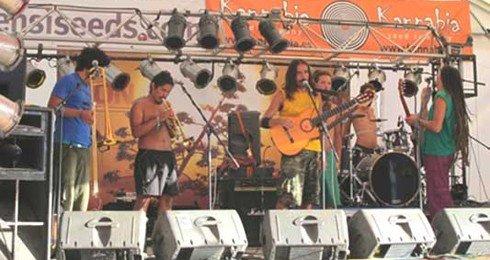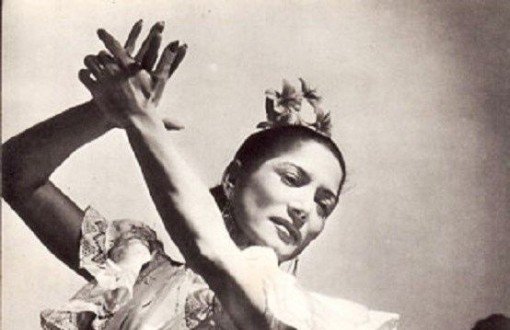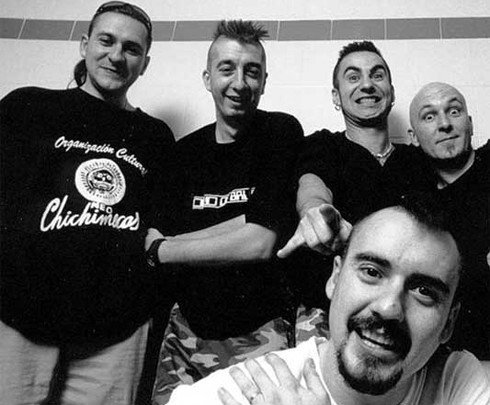People speak of the miracle, or even of the resurrection of the Almanjáyar neighbourhood, in the northern suburb of Grenada. The cause of this buena vibra (good vibration, translator's note) is the completion of a remake of the famous American series "Starsky & Hutch)*
All the actors live in the neighbourhood, which is mainly composed of gypsies. This is an area of Granada which is considered a difficult neighbourhood. The project was produced, directed and financed in the same neighbourhood. The budget did not surpass 70 euros with which the brothers, Antonio and José Emiliano Rodriguez, set up with a small digital camera, shot the film, sequence after sequence, involving around twenty inhabitants. The project established new relationships between the inhabitants and was acclaimed by the rest of the population during public projections. "For a whole month," says Pablo, one of the inhabitants of Almanjáyar, "we saw a Seat 124 Sport Coupé speed through the streets of the neighbourhood. I didn't participate directly in the shooting but I nevertheless enjoyed myself, especially on that day when the police, thinking that they were dealing with illegal races, came charging down with wailing sirens. When the directors explained that they were shooting a film, the police stopped to watch the filming."
The film, which is 110 minutes long, narrates the intervention of Starsky and Hutch in a case of a mysterious murder which takes place in the firing range of Almanjáyar. By following the trail given by a caretaker who was the only witness, the two unlikely detectives follow the traces of El Italiano, an enigmatic character and boss of the neighbourhood.
The shooting, which involved the whole neighbourhood, offered genuine moments of encounter and exchange. "I had never spoken to my gypsy neighbours," narrates 22 year old Lupe, "who came to ask me to lend them a wig and an item of clothing during the shooting. It was fun to participate in the project."
Even the women who form part of the gypsy community contributed to the new version of the film by playing the part of "ladies of the night. "There was no script," says one of these actresses. "I was the Madam of the group; we improvised everything. My husband played the part of a bodyguard."
In the barrio of Almanjáyar, which has a negative reputation, 15% of the population is made up of gypsies. In Grenada, this neighbourhood is considered as a place where drug trafficking, prostitution and criminality reign. It is why "Starsky y Hutch" land there to clean up the streets and to try and erase the malafama of Almanjáyar.
The small and big footsteps of an emerging group
What is an Italian doing amidst a group of Latin-Americans?
With a smile and a perfect porteño accent, Francesco Casatta explains that he is creating his own dream in a place where one can still dream, simply by being a musician, his profession. He is the leader of the reggae group Microguagua, the new sensation of this Barcelonese summer.
"In 2003," narrates Francesco, "when I decided to leave Italy, I chose Spain, and more particularly this town because of the type of music that one could do here. It is the sonido mestizaje, a mixture of genres, from reggae to latino, from punk to rock. I got immersed in the experience which is mostly achieved through the encounter of cultures. Then, subsequently, I felt the need for the opposite course, towards a purer reggae."
The group, which travels through the streets of the central barrios of the Catalan administrative centre, is the result of a cocktail of diverse and varied cultures. These are expressed in the notes transmitted by Coti and Guacho, two Argentineans, a bassist and a guitarist respectively; the Chilean Tomas and Tatan, at the drums and the horn; Oscar, the trombonist from Paraguay and finally Francesco, the Italian from Milan. "Many Brazilians have previously been part of Microguagua, but they couldn't keep up with the rhythm," says Francesco jokingly, "but one can still say that it's a composite group... yet the group is not yet complete. We still need two elements to reach our goal. It's a group made up of many Latin-Americans, some Europeans and no Spaniard... and it is fine like this."
The group gained recognition in the streets, and it is in this public arena that it refined its show. "We have been playing almost every day for the past three years, sometimes in the streets, in bars or in halls. The group's name, passed on by word of mouth, reached the organisers of the Rototom Sunsplash Reggae Festival, where we played for the first time this year. The turning point came with our second record, Barrio Santo. Let us just say that we are hard workers who are trying to make a name for ourselves."
It is this element which makes Spain a particularly attractive place, a place where there is still the possibility to achieve one's own goal albeit starting from the bottom.
The welcome received at the Rototom Sunsplash is the best proof of this. Since last August, the largest festival of reggae has established itself at Bénicassim, between Valencia and Barcelona. Exiled because of political pressure, after more than 15 years spent at Osoppo, in Friuli (north of Italy), Spain has become the new-found home of this prestigious and independent event. The result of this change was impressive: 100 thousand festival-goers attended the opening of the event. "Attacks against the Rototom represent yet another sign of this bella Italia," stresses the leader of Microguagua. "Things are going so badly that we cannot even organize a peaceful and inoffensive festival. Did the Rototom perhaps represent a danger because it was independent, without sponsors, and therefore too pure for a country where corruption persists?"(ÇT)
www.microguagua.com






